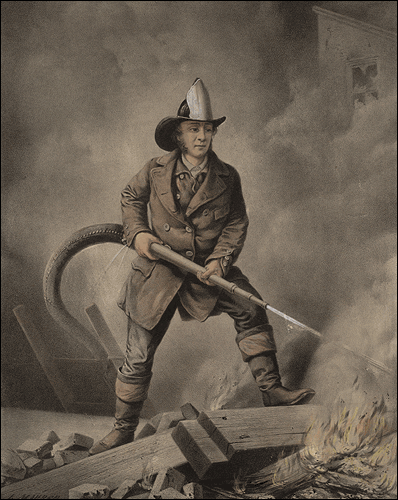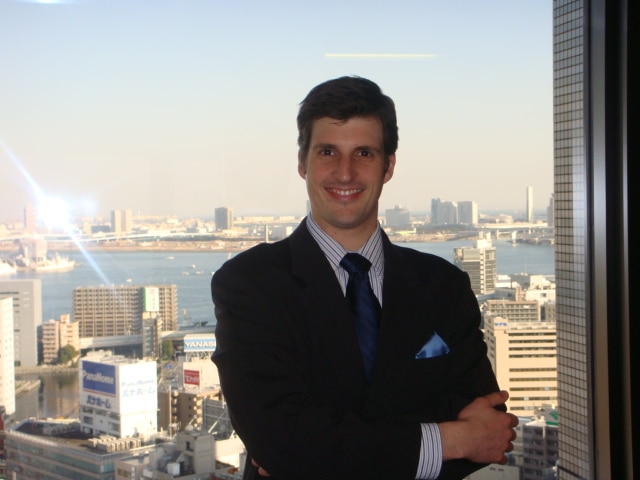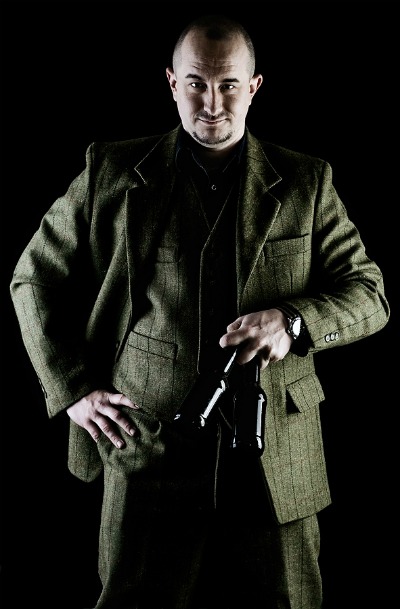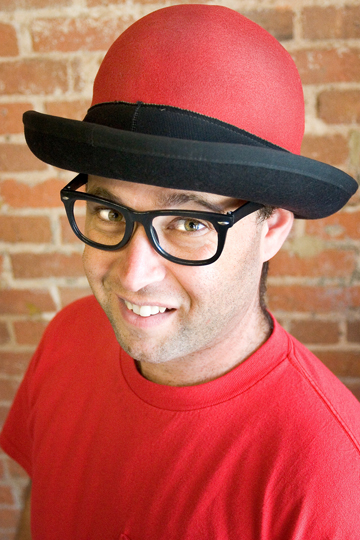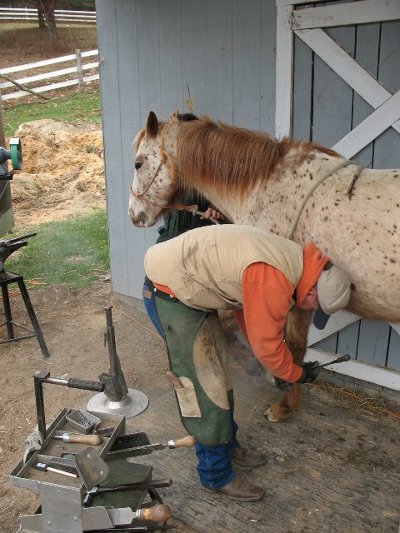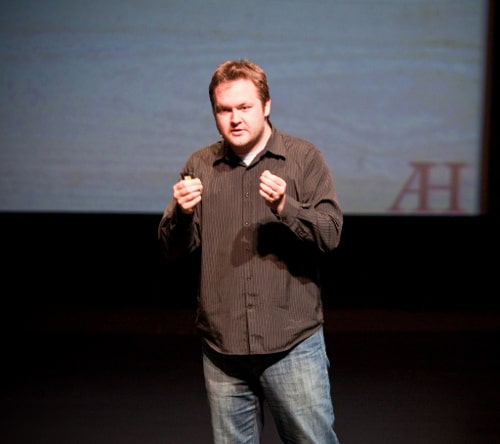
Photo by Alex Harris
Once again we return to our So You Want My Job series, in which we interview men who are employed in desirable jobs and ask them about the reality of their work and for advice on how men can live their dream.
Do you love to listen to yourself talk? Wouldn’t you love to not only make other people listen to you, but to get paid bookoodles of money to do it, all while traveling the world? Such is the sweet, sweet life of the public speaker. I know this is a job that a lot of gents aspire to, so I’m really pleased that Alex Hunter graciously offered us a fascinating and comprehensive look behind the scenes of this line of work.
1. Tell us a little about yourself (Where are you from? How old are you? Describe your job and how long you’ve been at it, etc.).
I’m 32 years old and currently split my time between the middle-of-nowhere in England and Northern California. I was born in the US to British parents and have been fortunate enough to live all over the world. I started my career in the web world with an airline in Hong Kong before moving back to California. I worked my way through various jobs before landing the sweetest gig of my career, running digital marketing for a startup airline, Virgin America. After 2 years of doing that I was called up to the big leagues and asked to run the global digital strategy for the entire Virgin brand back in London. A couple of exhausting years later, I turned 30 and decided to take some time off and then go out on my own. And that’s where I am today: an angel investor, branding nerd, and career public speaker. I speak about marketing, branding and brand psychology, loyalty, the startup world, and travel. I officially love my job.
2. Public speaking seems like a job opportunity that only opens up once you’ve become successful at something else. Is public speaking something you’ve always wanted to do, or something that came along unexpectedly in your life?
Completely and totally unexpectedly. We were doing some cool things at Virgin at the time and a guy called Ryan Carson (a fellow American in the UK) was just starting to ramp up his outstanding conference company and, well, he took a chance on me. He asked me to speak at a small conference to talk about what Virgin what was working on. I was actually in New York on business at the time and flew in to London on the day of the conference. I got straight off the plane and onto the stage. I opened with a joke, it got good laughs, and I was completely hooked from then on.
3. Once you’ve become successful in something, how to you segue into public speaking? How do you go about getting the word out that you’re available and start getting your first bookings?
The easiest route is to get in touch with conference organizers via email and introduce yourself. Give them a quick sense of who you are, what you’ve done, a brief synopsis of what you’d talk about, how their audience would benefit from your expertise, etc. Oh and that you’re willing to talk for free! You’d be surprised how often this works as conferences are always looking for fresh, new speakers to include in their lineups. Getting that first gig is always the hardest but it gets much easier after that because an audience has heard you, reacted to you, tweeted about you. The word about you is now officially out.
4. When people invite you to speak, how do you know how much to charge for your rate? What is the average rate of pay for speakers?
The very first thing I do is determine if the event organizers are willing to pay anything at all. A lot of conference speakers are happy to speak for free for a number of reasons; their employer doesn’t allow them to take a fee, they’re just starting out in speaking, the value of the exposure to their company or product is worth doing the speech for free. That’s not the case for me as I don’t have a service or product to promote so I get no value from “free publicity.” After that, I take a look at everything from the size of the event, where it is in the world, how many days I’ll have to be away from home, the topic, and the industry.
To be completely honest, once you’re established, public speaking can be very lucrative. I know people who charge anywhere between $25-40k for a single appearance. Some former CEOs, politicians, retired athletes, and “celebrities” charge hundreds of thousands of dollars for a single appearance. But it takes years and years of speaking and a hell of a reputation before you can start charging that much. If you’re curious, browse some of the speaking bureau websites–they often have price ranges listed for each speaker. Oh and just to be clear, high fee does NOT equal great speaker. I’ve seen some lousy speakers who charge an absolute fortune on the back of their previous career or accomplishments.
5. Some speakers are represented by agencies that book gigs for them. Do you recommend this?
When I first started out speaking professionally (i.e. being paid to speak) I was doing everything myself. Finding gigs, responding to inquiries, negotiating, planning travel, invoicing, chasing payment, etc. It was time consuming and really frustrating, especially anything to do with money. I didn’t know what I should be charging, how to structure the contracts to protect myself, when to say no to a gig, or what to do if an event organizer didn’t pay. The latter happened often, surprisingly–I’m still owed a pretty sizable fee for a gig I did 2 years ago.
Lesson learned. But for the last year I’ve been represented by a London-based agency called JLA (JLA.co.uk) who are awesome. They were recommended to me by a friend who is also represented by them. They take care of everything for me: finding gigs, negotiating on my behalf, all the contractual work, taking care of logistics, etc. They pay me directly, too, so I never have to worry about not getting paid.
6. How does getting representation work—do you reach out to them or do they reach out to you?
I got in touch with JLA, mentioning my friend’s recommendation, and we arranged to meet at their office. The meeting was mainly to see if my speaking style, content, etc would be a good fit for their client base and whether I felt they would be a good fit for the market I was going after. It’s been a fantastic relationship since Day 1.
All that said, I’ve been approached a number of times by other agencies who either want to represent me or want to feature me on their site. The latter happens often as agencies work together to cross-promote speakers. So it can work in both directions, but the key is to find an agent or agency that you can have a good, honest, open working relationship with and who really understands your style and content.
7. How many speaking engagements do you do a year?
My busiest year was 2010 when I did close to 30 engagements all over the world and racked up 103,000 miles of travel. I pulled back dramatically in 2011 so I could spend time with my newborn son. Right now I do about 1-2 paid events a month. That includes everything from full-day workshops to keynote speeches to MC’ing events for private organizations.
8. What do you think are the keys of being a successful public speaker?
You have to know your stuff. Inside and out. And I don’t just mean your subject matter, I mean your material. You have to know every slide, every transition, every image. That way you can present without notes or prompts which makes you seem conversational but knowledgeable– which is what all good speakers should be aiming for. It’s also super important to have simple, clean slides. In my most recent keynotes, over 80% of my slides only have one line OR graphic/chart on them. That way you’re not asking the audience to listen to you AND read an essay at the same time. Speaking of essays, avoid reading from a prepared script–so many people trip up on this one. They spend hours and hours writing out every word of their speech and then stand up and recite it verbatim. Snoozefest. It’s also lazy and a disservice to your audience and to you as a speaker. Finally, have fun! Relax, enjoy, go a little nuts and march around the stage–people will dig your energy and enthusiasm.
9. What is the best part of your job?
The people. I can’t think of many jobs where I would get to meet such a broad range of people in such a short space of time. And I’m not just talking about job roles or even industries, I’m talking about entirely different cultures. Whenever I go to an event I make it a point to hang out with as many people attending the event as possible, and I’ve made some great friends as a result. Another great thing about my job is that I’m exposed to a broad variety of new subjects. Each time I speak I spend several days researching the industry, the country, the attending companies, etc and since I speak at trade events for industries I know absolutely nothing about, several times a year I get to learn an entirely new subject. They have all been, without exception, fascinating.
10. What is the worst part of your job?
Apart from being away from home, I would say the worst part is the unpredictable nature of the speaking industry. You never know when your next event is going to be, so it can make it quite hard to plan around, both financially and logistically. It’s hard to factor in speaking work to your annual budget because while events pop up throughout the year, it would be a mistake to assume you’ll get a certain number of events during a given period. I’ve been doing this professionally for 2 years now and haven’t seen any patterns to how and when events come my way.
11. What is the work/family/life balance like for you?
It’s a series of extremes. Since I work from home I get to spend a lot of time with my wife and 15 month old son. But speaking frequently takes me all over the world, and I’m certainly grateful for that, but being away from my family really sucks. It got so bad that I started trying to figure out the shortest possible amount of time I could be away. So I’d fly from San Francisco to Singapore for 20 hours or back to London for a day and a half. Not healthy or fun. But I’ve been working on that and try to bring my wife and son with me when I visit new places or just turn the gig down if I think I’ll be gone for too long. On the flip side, the income means I can focus on other projects and not have to worry too much about paying the bills, as long as the speaking events come in reasonably regularly.
12. What is the biggest misconception people have about your job?
People are often surprised to hear that I’m paid a fee to speak at events. They assume that my expenses (travel, accommodation, etc) are covered but that the only people who are paid to speak are celebrities and ex-politicians. They’re even more surprised when I tell them the upper fee range that some people in the industry are commanding. But the world of professional public speaking is absolutely open to anyone who is knowledgeable and passionate about their subject. If you can relay your thoughts with enthusiasm and clarity, people will pay good money to hear what you have to say.
13. Any other advice, tips, commentary or anecdotes you’d like to share?
A couple of years ago I wrote down 10 tips for being an engaging public speaker. I live by these and they’ve served me well so far. You can find them here: http://thinkvitamin.com/web-industry/10-kick-ass-presentation-techniques/ To ultimately be successful as a public speaker, you need to be an entertainer AND educator. You have to hold hundreds of people’s attention for 30-60 minutes while giving them interesting, useful information to go home with. I won’t lie, it’s exhausting. But a hell of a lot of fun.
Tags: So You Want My Job



